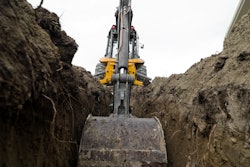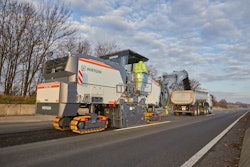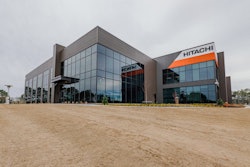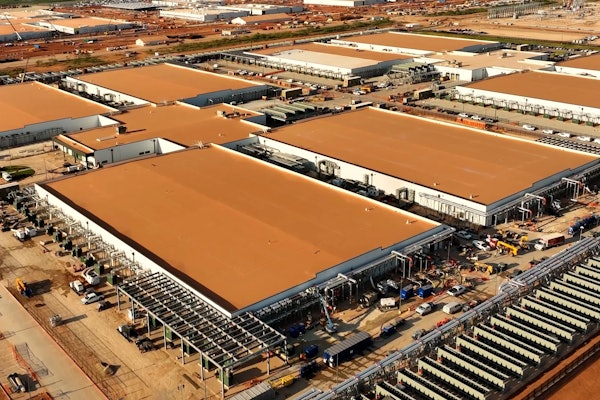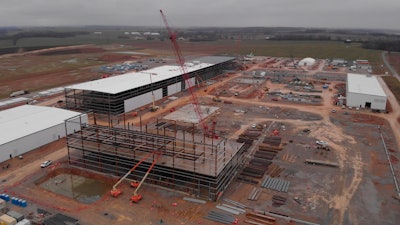
The federal government has approved the designated “mega projects” around the country for 2024.
Under the initiative that started in 2023, certain construction projects valued at $35 million or more, receiving partial or full federal funding and lasting more than one year will be designated “megaprojects” under the U.S. Office of Federal Contract Compliance Programs’ Mega Construction (Megaprojects) Program.
Via the program, the OFCCP actively engages with ongoing compliance assistance to contractors and subcontractors on these megaprojects to improve recruitment, hiring, and fair employment practices with the intent of removing hiring barriers and promoting consideration of a more diverse pool of qualified workers from underrepresented backgrounds.
Taking a more proactive approach, the OFCCP also conducts compliance reviews to evaluate contractors’ anti-discrimination and equal opportunity practices. To date, the strategy has resulted in greater contractor compliance with equal opportunity requirements and increased the representation of qualified workers from underrepresented groups in the construction trades.
Projects that receive the designation have fallen under the General Services Administration and the U.S. Department of Transportation, the U.S. Departments of Commerce and Energy, and the U.S. Environmental Protection Agency.
In addition to receiving federal funding, the projects selected are those that “have the greatest potential to make a positive difference in the community,” according to OFCCP.
The designees for 2024 were spread out over 11 states. They are as follows (in alphabetical order by state):
California
Alameda-Contra Costa Transit District: Training and Education Center Modernization and Purchase of Fuel Cell Buses
The Alameda-Contra Costa Transit District (AC Transit) achieved a significant milestone by being awarded $25.5 million through the Federal Transit Administration's prestigious 2023 Bus and Low-and No-Emission Grant Awards (Low-No Grant). The grant, which augments regional awards totaling $23.7 million, allows AC Transit to engage a plant to purchase an additional 25 hydrogen fuel-cell powered buses totaling $40 million.
In addition, a total of $16 million of federal dollars is providing most of the funding for the modernization of AC Transit's 40-year-old training and education center. Totaling $18 million, AC Transit will pursue opportunities to secure the remaining $2 million.
Dubbed Zero Emission Bus University or “ZEB U,” the new facility will be a campus of multi-purpose maintenance bays equipped with computers, advanced hardware and software diagnostics, and the high-tech tools needed to service complex zero-emission bus propulsion systems.
Via the platforms, trainers and students will have rooftop access to core ZEB components, such as HVAC, hydrogen fuel cell tanks, Lithium-Ion batteries, and energy storage systems.
Bayview Connections: Phase 1 Harney Way BRT and Cycle track
A total of $20 million was awarded from the U.S. DOT’s RAISE grant program of the San Francisco Municipal Transportation Agency for infrastructure improvements which will support the construction of transit and active transportation improvements in the Bayview neighborhood and support future large mixed-use developments such as Candlestick Point-Hunters Point Shipyard.
According to city and federal reports, the project will protect non-motorized travelers from safety risks and increase affordable transportation options by incorporating complete streets, bicycle lanes cycle tracks, and Bus Rapid Transit (BRT) lanes.
Components of the work are expected to include the widening of Harney Way between Arelious Walker Drive and Executive Park East; extension of Harney Avenue right-of-way north to Ingerson Avenue; extension of Arelious Walker Drive north to connect to Gilman Avenue; addition of bus lanes, both dedicated and shared infrastructure; implementation of cycle tracks and bike lane infrastructure; and expansion of the pedestrian network.
Colorado
CO Highway 119 Diagonal Highway Mobility Improvement Project
A $25 million federal grant was approved to help fund a far-reaching multimodal safety improvement project on CO 119 (The Diagonal) between Longmont and Boulder.
With the $25 million RAISE grant, the $162 million project will make traveling through the corridor safer for all modes of transportation, as well as faster and more reliable for public transit.
The proposal calls for the addition of a commuter bikeway in the middle of the two directions of the road, implementation of Bus Rapid Transit stops that will prioritize RTD buses at signal, and several other safety improvements at major intersections.
Connecticut
Move New Haven On-Street Bus Rapid Transit System
The U.S. DOT awarded the Connecticut Department of Transportation a $25 million RAISE grant to help build a new bus rapid transit system in New Haven. One nearly five-mile corridor would stretch between the New Haven Green to Hamden, and another six-mile corridor would go between the New Haven Green and West Haven.
The total cost of the project is estimated to be $150 million and includes the creation of 18 new stops, four mini hubs with enhanced amenities like larger shelters, more plentiful seating, and real-time passenger information.
In addition, the project includes upgraded traffic signals and pedestrian crossing technology, new bike lanes, and the acquisition of 15 new battery electric buses.
Construction is expected to begin in 2026 and be completed by 2029.
 The City of Atlanta and Atlanta BeltLine, Inc. are advancing the construction of a network of multi-use trails in northeast Atlanta between the Armour/Ottley and Lindbergh areas.City of Atlanta
The City of Atlanta and Atlanta BeltLine, Inc. are advancing the construction of a network of multi-use trails in northeast Atlanta between the Armour/Ottley and Lindbergh areas.City of Atlanta
Georgia
Trails to Transit: Reconnecting Atlanta Communities
The USDOT awarded a $25 million Rebuilding American Infrastructure with Sustainability and Equity (RAISE) grant to the City of Atlanta and Atlanta BeltLine, Inc. for the construction of a network of multi-use trails in northeast Atlanta between the Armour/Ottley and Lindbergh areas.
It will mark the first time the Atlanta BeltLine trail will connect to a MARTA transit station, at Lindbergh Center.
Under the project, Segment 3, and Connector Trails 1-3 of the Atlanta BeltLine Northeast Trail, totaling approximately 2.7 miles of 14-foot-wide mainline trail and approximately 2.1 miles of 12-foot-wide spur trails will be completed.
Illinois
Ottawa Radiation NPL-8
The U.S. Environmental Protection Agency allocated $90 million to clean up the last remaining area contaminated with radium as part of the Ottawa Radiation Areas site in Ottawa, Illinois.
The Ottawa Radiation Areas site consists of 16 areas, which are scattered throughout the city of Ottawa as well as locations outside the city, contaminated by radioactive materials. To date, the EPA has completed cleanup at 15 of the 16 contaminated areas.
The landfill on NPL-8 sits on 17 acres along state Route 71, about one mile east of the Ottawa city limits. Radioactive contaminated soils containing radium-226 will be excavated from the former landfill and transported off-site for disposal at a licensed facility.
Upon completion of the excavation activities, the area will be backfilled and regraded to restore the site. Cleanup activities are anticipated to begin in 2024.
Indiana
Downtown Indianapolis One-way to Two-way Street Conversions
Federal funding awarded to Indianapolis from the National Department of Transportation aims to transform roadways and improve infrastructure safety in Indianapolis.
The $25 million RAISE program will be matched by $20 million from the city to help fund the conversion of eight one-way streets, many in the downtown area.
According to city officials, making streets two-way has been shown to reduce speeds, provide more routes, and improve economic opportunity. The money will also fund numerous improvement projects, including new traffic signals, multi-use paths, and curb and sidewalk improvements. Project completion is expected in 2027.
Kentucky
Integrated Sustainable Battery Active Material Production Plant
Set to open in 2025, Ascend Elements’ Apex 1 facility will be North America’s first sustainable cathode precursor manufacturing facility, producing sustainable lithium-ion battery precursor and cathode active materials for up to 750,000 electric vehicles per year.
The project is supported in part by the Bipartisan Infrastructure Law (BIL) and the U.S. Department of Energy including at least two DOE grants totaling $480 million of the approximate $640 million project to build the 1-million square foot facility.
Maryland
Creating Equitable Connection on the Capital Trails Network
The U.S. DOT awarded a $25 million RAISE grant to the Creating Equitable Connections on the Capital Trails Network project in Prince George’s and Montgomery Counties and Washington D.C.
It was a significant win for the Capital Trails Coalition, a collaboration of public and private organizations, agencies, and volunteers with an ambitious vision to connect Virginia, Maryland, and the District of Columbia via a 990-mile trail network.
The project entails the repair of eight miles of some of the oldest existing trails, the construction of six new pathways spanning seven miles, and improving safety at major intersections and at-grade crossings.
New trail connections will be made to four metro rail stations and be near three future Purple Line light rail stations. In addition, the trail projects will close gaps, rehabilitate and upgrade sub-standard facilities, increase carrying capacity, enhance safety, improve access for people with physical disabilities, and expand access to the Capital Trails Network for underserved communities.
Combined, the expansion of the trail system is expected to provide access to more than 600,000 residents within a mile and a half of the trails.
The federal funds accelerate more than $70 million in projects that help complete the Anacostia Riverwalk Trail, rehabilitate Sligo Creek Trail and Northwest Branch Trail, and build the Central Avenue Connector Trail, Suitland Parkway Trail, and Prince George’s Connector.
New Hampshire
General Sullivan Bridge Bicycle and Pedestrian Crossing
The New Hampshire Department of Transportation will receive $20 million in federal funding from the U.S. DOT through the Rebuilding American Infrastructure with Sustainability and Equity (RAISE) grant program to support the General Sullivan Bridge bicycle and pedestrian crossing project in Rockingham and Strafford Counties.
Specifically, the project will replace the General Sullivan Bridge with a new two-girder superstructure to re-open the multi-use path across Little Bay that provides a link between Newington and Dover. Without the bridge, non-motor vehicle travelers are forced on a 25-mile detour to avoid the closure.
Pennsylvania
James A. Byrne U.S. Courthouse
A total of $83.955 million was approved by the General Services Administration (GSA) for a massive renovation and repair projects at the James A. Byrne U.S. Courthouse, which is part of the 1.7 million square foot Byrne-Green federal complex in downtown Philadelphia, Pennsylvania that supports the operation of the U.S. Court of Appeals for the Third Circuit and the U.S. District Court for the Eastern District of Pennsylvania.
The proposed project will upgrade the HVAC system, which includes comprehensive repairs or replacement of obsolete air handling units and degraded ductwork, the installation of enhanced controls, and related electrical and life-safety upgrades.
As proposed, the project will be executed while the building remains occupied and therefore must be phased so as to not disrupt tenant operation.
 Dallas Area Rapid Transit (DART) is working on the construction of approximately 5.2 miles of shared-use trail including safety treatments, which will be built from Meandering Way in Dallas to Shiloh Road in Plano and will directly connect to several Silver Line rail station platforms.DART
Dallas Area Rapid Transit (DART) is working on the construction of approximately 5.2 miles of shared-use trail including safety treatments, which will be built from Meandering Way in Dallas to Shiloh Road in Plano and will directly connect to several Silver Line rail station platforms.DART
Texas
DART Cotton Belt/Silver Line Rail Shared-Use Trail
Dallas Area Rapid Transit (DART) also was the recipient of a $25 million U.S. DOT RAISE grant to Fund the construction of approximately 5.2 miles of shared-use trail including safety treatments, which will be built from Meandering Way in Dallas to Shiloh Road in Plano and will directly connect to several Silver Line rail station platforms.
The alignment traverses seven cities: Grapevine, Coppell, Dallas, Carrollton, Addison, Richardson, and Plano.
The total Silver Line Regional Rail Project is estimated to cost $1.245 billion. To augment local funding, DART received a $908 million loan from the U.S. DOT to be repaid via annual passenger revenue.
Service on the Silver Line is expected to begin sometime in either late 2025 or mid-2026.


